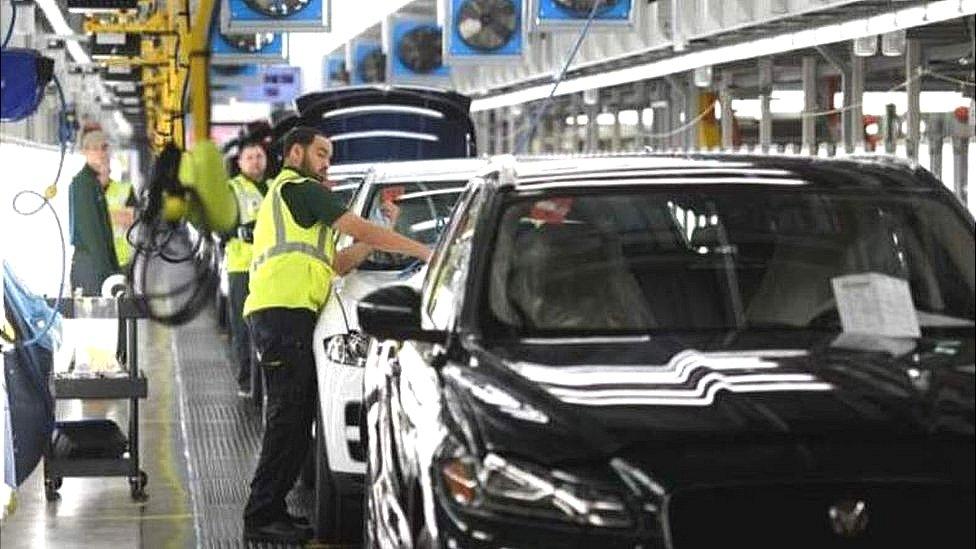Jaguar Land Rover to cut 500 jobs at its Halewood plant
- Published

Jaguar Land Rover makes the Range Rover Evoque and Land Rover Discovery Sport at Halewood
Jaguar Land Rover is cutting 500 jobs at its Halewood plant on Merseyside, the company has confirmed.
Workers were told the losses were a result of changing the shift patterns that will come into effect from April.
The losses are a mixture of permanent employees and agency staff, said the union Unite, which described it as a "fresh blow to the car industry".
The car maker said last year it planned to cut 4,500 jobs globally as part of a £2.5bn plan to reverse losses.
Jaguar has about 4,000 permanent employees at Halewood and told staff in a statement the losses would affect about 10% of its total workforce when it moves from three shifts to two a day.
'Further blow'
The union said it understood the redundancies were a result of ongoing economic uncertainty, with slower than forecast rates of growth for the Evoque and Discovery Sport models produced at the factory.
"This is a further blow to the UK car industry and to our members at Halewood," said Unite's national officer Des Quinn.
"Unite will be ensuring that the commitment to limit job losses to voluntary redundancies is fully honoured.
"Until the government ensures there is long-term frictionless trade and no tariffs with the European Union, the UK's car industry will continue to experience severe challenges."
The company said in a statement: "This is about efficiency, not loss of volume.
"Through its ongoing transformation programme, Jaguar Land Rover is taking action to optimise performance, enable sustainable growth and safeguard the long-term success of our business.
"Central to the Halewood manufacturing strategy, we are moving from a three-shift to a 'two-plus' shift pattern from April 2020.
"This will deliver significant operating efficiencies at the plant, while enabling us to meet the growing customer demand for our new Range Rover Evoque and Land Rover Discovery Sport."
Employees currently work early, late and night shifts - under the 'two-plus' pattern, this will change to just early and late shifts, the firm said, with capacity to increase production when required.
Applications for voluntary redundancy will open in early February with people expected to leave on 10 April.